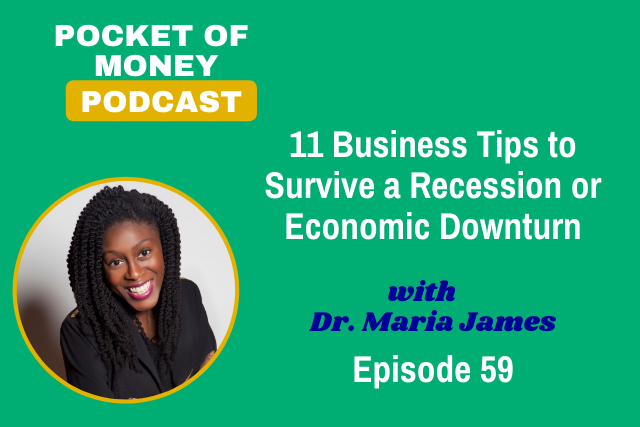5 Tidbits to Build Wealth

Who doesn’t want to build wealth and achieve financial freedom? It’s seems so elusive to many; yet, there are also many who have achieved it. Some you see splashed on the television screen or in those top millionaire lists, while others are quietly amassing their wealth unbeknownst to anyone besides themselves and maybe their financial advisor. The latter is who you should truly admire and aspire to imitate. They learned and studied the tricks and implement them to reach their goals, with no flashy career, no global-household-name business or product. With the right knowledge, skills and behavior you can do it. There is a science behind creating wealth, a method to the madness if you will. I share tips and tidbits of this, especially in my newsletter. Check out five wealth building tidbits below.
1) It’s all in the risk
Investing money in the stock market can have big payoffs. When you invest you get your money to work for you to bring in more money. You may be thinking, yes how do I do that! Well let’s start with what is investing. A simplified view of investing is you’re giving money to a company to help them run and better their business so that they make more revenue and can pay you dividends (money) from their profits. Also, the better the company does the more it’s shares of stock are worth, which means if and when you decide to sell your shares in that company you will make a profit on your initial investment and this excludes the dividends you received while you owned the stock. Sounds good right. Well there are a few things you should decide and do before beginning to invest. Decide how big of a risk taker you are and how much you want to be in control of your investments. If you have the knowledge and are more of a risk taker then you may consider picking your own stocks. If you wouldn’t be able to sleep at night for wondering if you picked the right stocks, I suggest talking to an expert or going the mutual fund route. Sure both those options will incur fees but then you’re not worrying over picking diversified, well performing stocks on your own. Shop around for the best advisor or mutual fund that suits your needs. Also, do make sure you have an emergency fund or cash cushion before tying up funds in investments. Once you invest you won’t be seeing that money for quite a few years if you want the best bang for your buck.
2) Net worth is worth a look
When you see those posts or articles listing the “the top 10 millionaires” they are discussing the net worth of each individual on the list. It’s a snap shot of their current financial health or status. Basically, net worth is calculated by subtracting your total liabilities from your total assets (I provide a template to calculate it). The resulting number is a great gauge as to how your money management is going. If you have a lot of debt to pay back then it’s likely you’ll have a low net worth. I remember calculating my net worth in college and was shocked to realize it was a negative number. A negative number! Even though I shouldn’t have been shocked, student loans and negligible income means a ridiculously low net worth. Glad to say after a little struggling, I am no longer in that boat. Of course I’m definitely not making the top 10 millionaires list, but I can dream.
Calculate your net worth so you have a baseline as to your financial health. As you implement and learn money saving tips your finances will begin getting healthier. Your net worth will grow. In six months to a year, give yourself a check-up by re-calculating your net worth and see how much you’ve improved. You can chart your progress as you build wealth and reduce debt. It’ll be great motivation to continue.
3) Housing as an investment
Many associate the attainment of the American dream with owning a nice home. It’s also considered to be a sound investment. However, a home as an investment is just like any other investment. There is no guarantee that you will see a return on your initial investment, as evidenced by the housing bubble and sharp decline in housing sale prices in 2008-2010. To make your home help you build wealth: pay it off as quickly as possible and pay the mortgage loan back in full before retirement age.
If you’re thinking of purchasing a home make sure to accept a mortgage that does not penalize you for making early or extra payments. If you already own your home check with the bank that holds your mortgage to be clear on rules about extra and/or early payments. If you use a separate company to make the extra payments make sure the extra money isn’t being eaten up by fees instead of paying down your principle. By paying your home off early, you’ll end up paying less to the bank (you’ll save thousands) and you’ll make more money if you decide to sell or rent out the home in the future.
4) Short-term investments
Previously I’ve informed you that investing is about letting your money compound for years. Generally, this is how investing works. However, there are some opportunities for short-term investing. If you’re saving up for a goal that will take a few months to years to accomplish, such as saving for a down payment on a house or a car, then you may want to look into money market mutual funds. They’re more stable and secure in the sense that they do not have wild fluctuations. Investment items found in this market are treasury bills, certificate of deposits, and other items with short maturation times.
The annual return for the money market is 3-4% which will allow you to keep up with inflation and earn a little money on your money quickly. Of course, this rate of return is much lower than the 8-12% annual return you can receive investing in the other segments of the market, but the money market is stable, has much less risk, and allows for investing short-term. Shop around for money market mutual funds that best suit your needs. Money market mutual funds have better returns than money market accounts at banks.
5) What’s your plan?
Saving and investing are two key elements to building wealth; however, in order to reach financial success you need to have a plan. A financial plan that details your goal amount and how you will reach this amount is crucial. You need to write step by step how you will create your nest egg during your career, how you will grow this nest egg, and how you plan to spend it during retirement.
The rule is to be able to live off of at minimum 4% of your return on investments. This will ensure the nest egg lasts thirty years post retirement. However, you’ll most likely need to use 8% or more to live comfortably. Do you know the annual dollar amount you will need for living expenses during retirement? This will determine how large your nest egg needs to be. Use this calculation: take the annual income you wish to retire on and divide it by 0.08. For example: $60,000/0.08 = $750,000. Therefore, if I wanted to live off $60,000 per year in retirement I would need at minimum a nest egg of $750,000 in investments that have a twelve percent annual return or higher. What’s the number you need for your nest egg?
Photo credit: Tax Credits
I love hearing from you. Leave your comments below and reach us on Facebook and Twitter.






